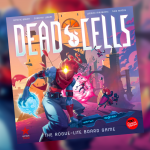
Valve has announced today that they’re implementing a sales-proportional revenue model for Steam that seeks to give developers more revenue from their games and software as they get more popular.
The current model on Steam is a flat percentage, where Valve takes 33 percent of a game’s revenue and the publisher takes the remaining 66 percent. By and large, this is common over the entire industry, with Nintendo, Sony, and Microsoft having similar revenue splits in place. Valve’s new model differs in that the 33 percent is now a temporary number until the game achieves threshold of revenue.
“Starting from October 1, 2018 (i.e. revenues prior to that date are not included), when a game makes over $10 million on Steam, the revenue share for that application will adjust to 75 percent/25 percent on earnings beyond $10M,” Valve writes in a Steam Devworks announcement today. “At $50 million, the revenue share will adjust to 80 percent/20 percent on earnings beyond $50M. Revenue includes game packages, DLC, in-game sales, and Community Marketplace game fees. Our hope is this change will reward the positive network effects generated by developers of big games, further aligning their interests with Steam and the community.”
Basically, the more money your game makes, the bigger split you get off further sales.
This is one of the first major moves for a storefront the size of Steam toward variable revenue models and confronting the traditional 33 percent model in a modern age of digital distribution and smaller publishers. Epic recently made an announcement to adjust their revenue share on their Unreal Asset Store with a more aggressive and standardized 88/12 split. In that case, Epic cites the success of Fortnite as subsidizing the missing revenue they would get.
It seems fairly plain to see that this move is meant to keep larger publishers, like Bethesda or Ubisoft, from moving their operations off of Steam. By and large, indie developers are not going to see revenue in excess of $10 million, so the standard model is a ditch with walls too high to crawl out from. With Bethesda moving games like Fallout 76 off Steam so they can keep more of the sale than Steam allows, though, this might entice them to return. Still, I think it would be better for the market if it were simply a flat rate for all games, but I imagine the prospect of making less money is not appetizing to anyone.
























